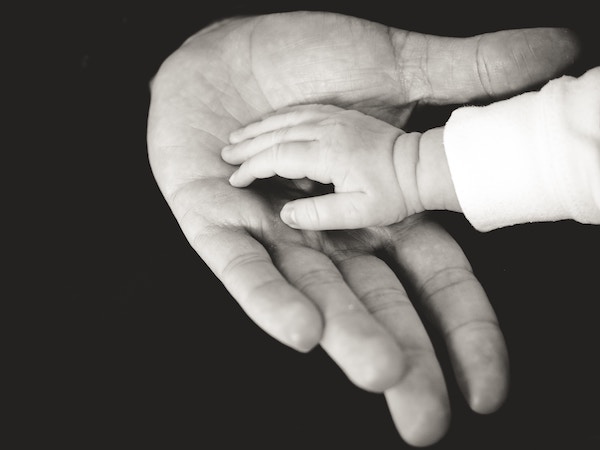“What screws us up the most in life is the picture in our head of how it’s supposed to be”
Last week I got an opportunity to meet two separate set of parents of children with special needs. Two different couples, two different worlds and two different perspectives! It was almost like opening an encyclopaedia on human limitations, perceptions, prejudices and convictions!
The first couple that I met and can share about are Kavita and Himanshu, a young couple in their mid twenties who adopted a little girl with Down Syndrome and are ecstatic to have her in their lives. It was my first meeting with them and I was spellbound to see how happy they were talking about the new addition in their family, how they were taking turns to hold her, to put her to sleep, making sure she was comfortable and just enjoying, being the first time parents.
The other couple who I met and can’t share their names are in their late 40s with a 10 year old child with special needs. The father is a highly reputed researcher and a professor, the mother, a home-maker. They’ve lived all over the world, have travelled extensively and are extremely well-to-do.
The professor couple has still not been able to accept the fact that the child has special needs. They have not tried to found out about his real diagnosis yet! He said,’ the child could have autism, ADHD, learning disability or something else, but there is some special need!’ I advised him to have a diagnosis and then think about ways to teach but he wasn’t really ready to meet a specialist! He didn’t want to talk about his child in front of others and was contemplating moving abroad!
I felt bad for the boy, but worse for the father. I knew how he was feeling because I too was there about nine years ago and knew how difficult was the journey.
It was easier to come to terms with the diagnosis once the ‘unknown’ became ‘known’, but reaching there was tough, and I could sincerely identify with the father for trying to escape and avoid that information. I knew he was trapped between his super achiever self and the social stigma of him being the father of a boy, who’s not ‘genius’!
Also Read: Special Needs Parents: 6 Practical Ways To Stop Worrying And Start Living
It is so surprising how social-awareness movements have transformed the experiences of raising a child with special needs in some ways but still there is this huge ignominy in being one and then being open about it. Despite the enormous strides that the world has made, the disability remains rarely discussed especially when there are no stakeholders directly involved.
I recalled a few lines of Alan O. Ross from ‘The Exceptional Child’, that parents’ expectations ‘invariably include that the child will be able to surpass, or at least attain, the parents’ level of socio-cultural accomplishment’. He further writes,’When the child does not conform to this image, the parents often need help in adapting their behaviour to the reality-they must learn to cope with the dissonance between their image of “a child” and the reality of “their child”.’
I began to realise that more often than not it is not really about the severity of the disability, but the importance a family places on society and how others perceive them.

I understood but wondered how differently these two couples were taking on the challenges. Was it because in one case they chose the life they were going to have and thus have made up their minds about prospective issues and difficulties? If it was true, then how and why it couldn’t prepare the other biological parents in accepting the situation is ironic. It made me ponder a little more into what really can drive us into behaving like two extreme ends of the spectrum, even when the challenge faced is the same.
Does it also mean that a lot of times we choose complications based on our conditioning than an easy way to deal with issues?
Could it be the age of the parents? Do millennials care less about what society thinks and expects? Are they more connected to social causes and are more flexible in terms of life choices? If this is true, is the older couple perceiving the difficulties more based on their perceptions and societal outlook towards special needs? I wondered if this was the reason for them to not accept and not deal with the diagnosis of their child?
My interaction with both the couples helped me learn a few things, which is the reason of me writing this post. This is not to judge but to experience mindfully. This is to reiterate the fact that life’s 10% what happens to us and 90% how we react to it!
This experience added a few insights into my ever growing experiences of human challenges and strengths and made me realise how our outlook can change the course of our lives. It made me realise that sometimes it is better to ‘not understand’ and just accept, and how everything we are going through or are made to go through is helping us in learning and becoming the person we are intended to become!
I hope I was able to show and share the reason of me writing this post: How acceptance paves the way for everything and how attitudes in life can change the course of your life, irrespective of whether you are a special needs parent or not.






